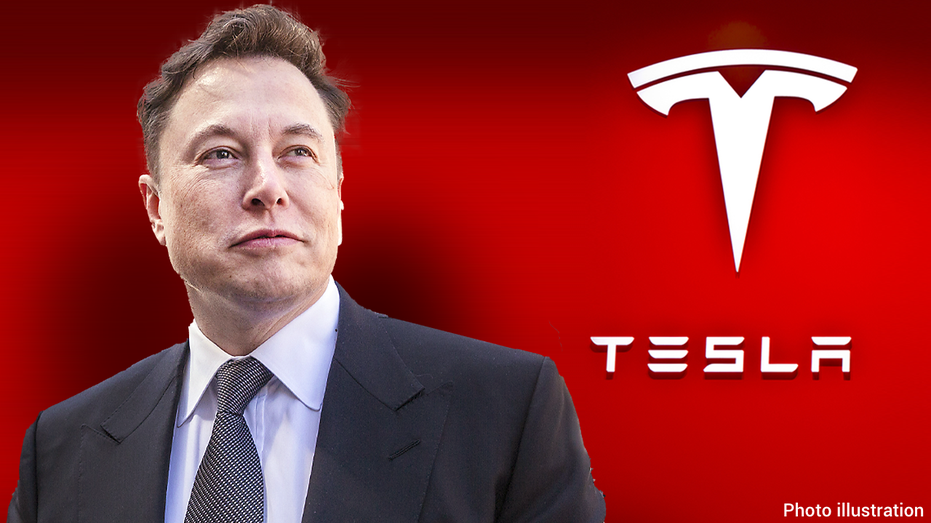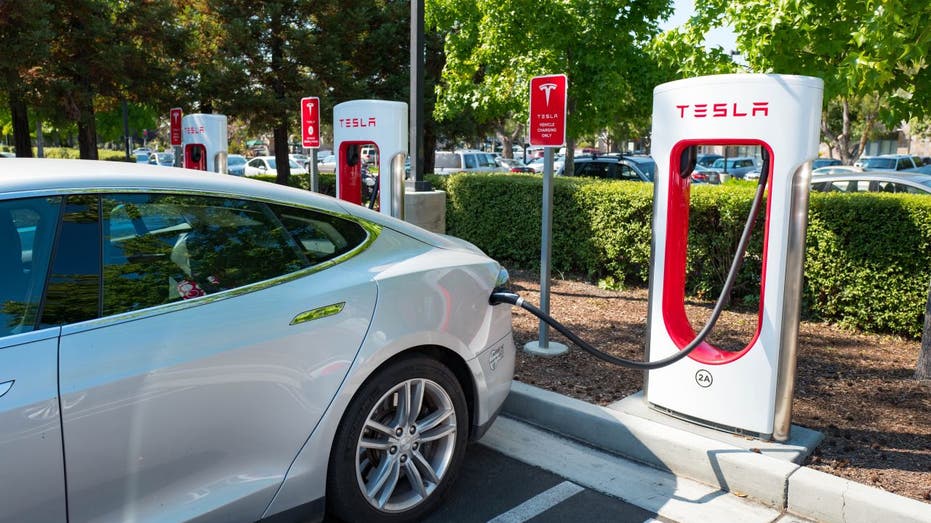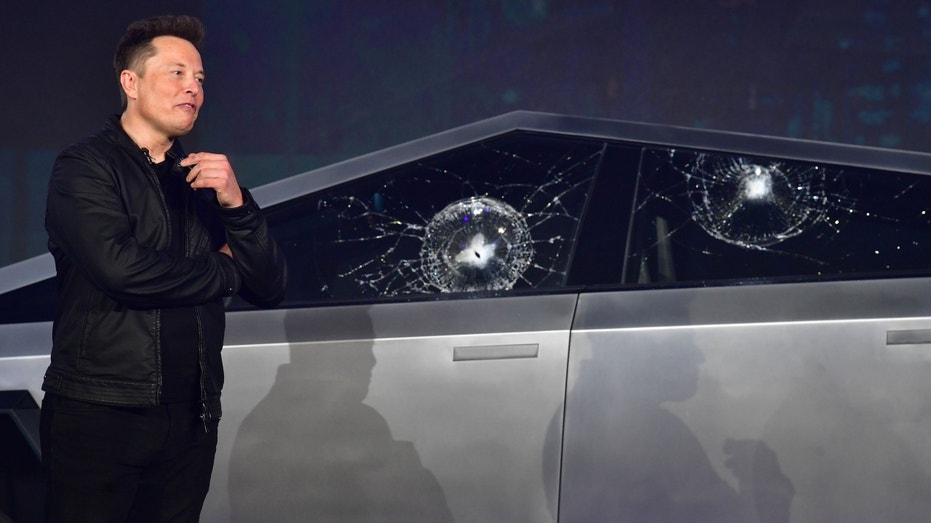Varney & Co. host Stuart Varney discusses whether Elon Musks latest technological gamble will pay off for investors.
Tesla’s eight-biggest shareholder says it will vote against ratifying CEO Elon Musk’s $56 billion pay package which is up for a shareholder vote next week.
Norway’s $1.7 trillion sovereign wealth fund, which has been critical of excessive CEO pay, announced the move on Saturday.
The fund holds a 0.98% stake in the electric vehicle maker worth $7.7 billion according to fund data. The fund is the largest wealth fund in the world and owns 1.5% of all the world’s listed stocks.
TESLA ASKS SHAREHOLDERS REINSTATE ELON MUSK’S PAY, MOVE TO TEXAS

Photo illustration of Elon Musk in front of the Tesla logo. (Getty Images / Getty Images)
Norges Bank Investment Management (NBIM), the operator of the fund, said the fund appreciated the significant value generated under Musk’s leadership since the grant date in 2018 but remains “concerned about the total size of the award, the structure given performance triggers, dilution, and lack of mitigation of key person risk/”
“We will continue to seek constructive dialogue with Tesla on this and other topics,” NBIM added.
The fund also said it would vote for a shareholder proposal calling on Tesla to adopt freedom of association and collective bargaining policy, a win for labor unions seeking to assert their influence over the U.S. carmaker.
Musk’s pay was approved in 2018 but voided by a Delaware judge earlier this year who said the amount was unfair to shareholders, calling it an “unfathomable sum.”
Judge Kathaleen McCormick of Delaware’s Court of Chancery ruled in favor of a lawsuit brought by a shareholder to strike down the package and wrote in her decision that the package was excessively large as it was by far the largest compensation package for the CEO of a publicly traded company.
ELON MUSK’S $56 BILLION PAY PACKAGE VOIDED BY JUDGE

A Tesla automobile plugged in and charging at a charging station in the Silicon Valley town of Mountain View, California. (Photo by Smith Collection/Gado/Getty Images / Getty Images)
McCormick also faulted the Tesla board of directors for failing to fully disclose to shareholders the close relationship between the directors who approved the compensation package and Musk, as well as the relative ease with which Tesla would achieve the benchmarks tied to tranches of his compensation plan given the company’s growth at the time.
Norway’s sovereign wealth fund also voted against the package in 2018, while last year it voted against more than half of U.S. CEO pay packages above $20 million, warning they did not align with long-term value creation for shareholders.
Should Musk’s payout go through, it would be the largest for a chief executive in corporate America.
Tesla’s board of directors proposed the reinstatement of the pay package, which has no salary or cash bonus and offers rewards in the form of stock options that are awarded based on Tesla’s market value rising to as much as $650 billion over the 10 years following 2018. The company is currently valued at about $571.6 billion, according to LSEG data.
Tesla has urged shareholders to reaffirm their approval of Musk’s compensation plan. In an interview with the Financial Times earlier this month, Tesla board chair Robyn Denholm said that Musk deserves the pay package because the company hit ambitious targets for revenue and its stock price.
However, Glass Lewis, a major American proxy advisory services company, last month urged Tesla shareholders to reject the staggering package, citing its “excessive size,” the impact of Musk exercising the stock options and the concentration of the company’s ownership.
GET FOX BUSINESS ON THE GO BY CLICKING HERE

Tesla co-founder and CEO Elon Musk verbally reacts at the unveiling of the all-electric battery-powered Tesla Cybertruck. The broken glass on windows following a demonstration did not go as planned on November 21, 2019 at Tesla Design Center in Hawth (Photo by FREDERIC J. BROWN/AFP via Getty Images / Getty Images)
It also cited Musk’s “slate of extraordinarily time-consuming projects” which have increased following the acquisition of Twitter, now known as X, where Musk serves as chief technology officer and executive chairman. Musk is also the CEO of SpaceX and artificial intelligence firm xAI, and is the founder of Neuralink and The Boring Company.
Musk has served as Tesla CEO since 2008 and has helped drive the EV-maker’s rise to the most valuable automaker in terms of market capitalization. He brought the company from a $2.2 billion loss in 2018 to a $15 billion profit and has increased vehicle production by a factor of seven, according to the Vote Tesla campaign website.
The company has faced headwinds amid a cooling of consumer interest in EVs, with Tesla reporting a sales volume decline in the first quarter for the first time in nearly four years.
Fox Business’ Eric Revell and Reuters contributed to this report.



